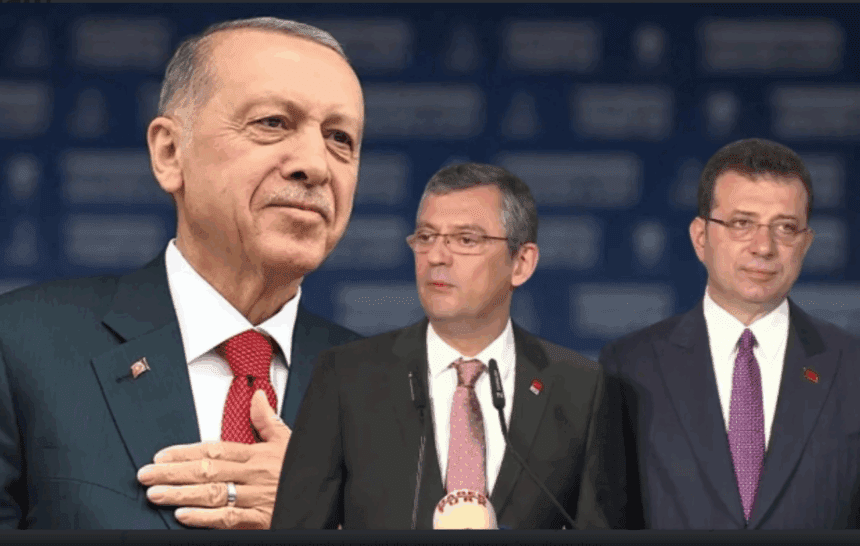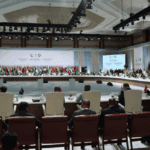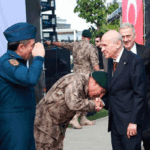Ankara’s decision to adjourn the “absolute nullity” case against the CHP’s 2023 congress until October 24 didn’t defuse the crisis; it lengthened the fuse. The delay leaves Özgür Özel nominally in place while the party rushes toward an extraordinary congress on September 21—a legal shield improvised only after courts were invited to relitigate the vote that ousted Kemal Kılıçdaroğlu. The system keeps postponing rather than deciding for two structural reasons. First, Erdoğan’s mobilization machine needs a beating-but-beatable CHP to frighten conservative voters into line; erase the congress outright and the foil collapses. Second, the very threat of nullifying the CHP’s mandate risks catalyzing a competence-first centrist party—much as the AKP itself was born two decades ago from public backlash to tutelary overreach and economic breakdown, selling “boring legality,” municipal efficiency, and rule-bound governance.
This is politically suicidal for the CHP and strategically risky for the regime. If the judiciary ever crosses the line from harassment to annihilation and actually voids the 2023 congress, the palace loses its foil and gains a vacuum. That vacuum won’t stay empty. The voters, especially the “missing middle,” will look for a vehicle that promises predictability. Call it a boring centre. It is exactly what created the AKP’s early reformist moment—and exactly what Erdoğan’s current strategy could accidentally midwife again
Erdoğan understands the risks better than anyone, because he once rode the same dynamic from the other side. In the late 1990s a generational split inside political Islam—reformists breaking from Necmettin Erbakan and the rigid Milli Görüş line—recast Turkish politics. Branding themselves as European-minded, market-friendly conservative democrats, Erdoğan and his cohort built the AKP by promising rules, services, and competence. The party’s 2002 sweep didn’t merely elevate Erdoğan; it buried the old center-right and captured the “missing middle” that wanted government to work. The symmetry today is striking: having become the establishment he once fought, Erdoğan now uses the state and the courts to deny his most potent rival, Ekrem İmamoğlu and other potential contenders the same institutional oxygen that once lifted him.
Against that chronology, Özel’s late-hour toolkit lands like theater. He threatens to litigate the past; he promises peaceful disruption if the squeeze continues; he reassures supporters that “not all judges are captured” even as he calls the litigation track “risky” because it might further weaken the rule of law. In practice, this is proof-of-life politics: set-piece gestures that signal pluralism to foreign capitals while ratifying the arena’s rules at home. The decisive hour was March 2025, when İmamoğlu’s jailing produced the broadest, least partisan surge of sympathy in years. That was the moment to escalate—lawful, sustained, disciplined mass action with a clear rule-of-law frame; to activate bar associations, unions, universities, and business platforms; to translate judicial overreach into concrete costs for households and firms. Instead, the energy bled into statements and studio hits. As the Turkish proverb has it, “Geçti Bor’un pazarı, sür eşeğini Niğde’ye.”: the market in Bor is over; now comes the long, grinding road.
The harsher truth is that Özel has become the hinge of the non-contest. His rhetoric is oppositional; his practice is calendar management. He organizes politics around the regime’s timetable—one more harsh statement, one more rally, one more congress—rather than forcing a change in terrain. Each week spent gaming procedures inside a shrinking arena is a week not spent building capacity—legal, municipal, financial, organizational—to operate outside the palace’s script. And by personalizing the CHP’s fate around his own tenure, hedging around the party’s strongest municipal assets, and repeatedly privileging optics over constraints, he narrows rather than widens the coalition that could break the stalemate. In this sense, Özel completes Erdoğan: the palace needs a visible, noisy, ultimately manageable antagonist, and the CHP under Özel keeps volunteering for the role.
Ultimately, this adjournment exposes the limit of a bargain both men now serve: Erdoğan cannot cancel the congress without shattering the polarization machine that feeds him, and Özgür Özel cannot keep managing the calendar and calling it resistance. If the courts lurch from harassment to annihilation and void the 2023 vote, they won’t restore control; they’ll create a vacuum that a competence-first, rules-driven center will race to fill. If they keep postponing instead, they teach the electorate that ballots are provisional and deepen the craving for that same “boring” predictability—whether inside the CHP or beyond it. Either way, the script that once launched the AKP now threatens to birth its successor. The only counter is not another rally or press hit, but a CHP that stops performing opposition and starts binding power—clean procedures it does not control, coalitions it does not personally own, and costs it forces the regime to pay. Absent that pivot, Erdoğan needn’t cancel anything; Özel will keep helping him turn delay into the defeat of democracy—under the guise of defending it.
By: News About Turkey (NAT)



